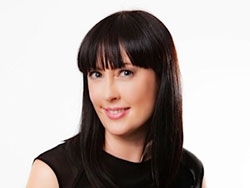It’s time health professionals, particularly those working in regional and remote Australia, began better connecting with patients, clients, colleagues and the community on a digital level. Social media delivers your health message direct to patients and the community.
These days, Debra Cerasa rarely has a mobile device out of reach.
Subscribe for FREE to the HealthTimes magazine
And like many Australians, this nurse, midwife and recently appointed CEO at
Otway Health is tapping into the benefits of social media.
Debra has a personal Facebook and Twitter account, which also doubles for professional use, plus Instagram, Facebook and Twitter accounts and a blog, all for her family’s small business.
And, in her new role in the small coastal town in south-west Victoria, she appointed a full-time communications officer to oversee the health service’s social media accounts in a bid to improve engagement and share information with the local community.
Debra first championed social media as a powerful tool for nurses when, as CEO of the then Royal College of Nursing Australia, she led the development and release of social media guidelines for nurses in 2011.
“At the time, people were saying we shouldn’t be getting on to social media - that we’ll breach privacy and confidentiality, and to me that didn’t make sense,” she says.
“Privacy and confidentiality is a principle and it’s a practice that people have to do. You don’t make rules about it, people either practice it or they don’t.
“If they don’t follow the rules, it doesn’t matter what the medium is, it will be breached.
“What we did was just basic common sense.”
Australia’s
social media statistics are staggering. In October alone, there were 14,000,000 people using Facebook, 2,800,000 on Twitter, 13,900,000 hits on YouTube and 5,000,000 people using Instagram.
Patients are better informed than ever before. Many are using social media to access breaking information about health topics, reviewing videos about managing their condition, discussing health topics with other patients and medical practitioners, and reading up on the latest research.
Patients are posting and reviewing pictures about their disease journey, and also researching medical practitioners’ skills and backgrounds before attending their appointments.
Despite the expansion of social media, Debra says health practitioners are often reluctant to embrace the potential of social media.
“Patients are getting onto the bandwagon but the health professionals are being really slow to pick up on it,” she says.
“This incredible explosion of information and access to information and access to knowledge is there for every single person that can get an internet connection.
“To me, that’s the most mind-boggling possibility - so how could we not love something like that?”
Debra recently spoke about the importance of social media for rural and remote nurses, midwives, allied health professionals and other health practitioners at the 33rd annual
CRANAplus conference, held in Alice Springs.
Health professionals must harness the power that they have right at their fingertips and communicate with their patients and community, she says.
“One of the interesting statistics is that a third of people who go to their health practitioner have already Googled for a self-diagnosis and 40 per cent of the time their provisional self-diagnosis is correct - now I think that’s a powerful statistic.
“If health is going to continue to be the most costly social expense in our societies, the way that we can overcome a lot of that is to start to trust in what our patients are saying.
“The flip side of that for me is that I’m all about everybody having their responsibility and ownership about their own health and body and wellbeing themselves.
“If people actually know more about themselves and can actually take greater control, we will change the whole social determinants of health. I see it as being incredibly powerful and dynamic.”
Debra says social media is even more important for rural and remote health professionals because of its ability to overcome vast distances to help them remain connected while sharing information with their community, colleagues and professional networks.
Health professionals can also engage in public debates and dialogue with their community and colleagues, help the public access accurate health information, and improve patient access to services through social media.
Debra says nurses, midwives and allied health professionals will often use social media to connect with family and friends but they often fail to consider using social media on a professional level.
“When you think about how patients are using social media, you have to be a responsible health practitioner and actually get this,” she says.
“You have to understand that they’re getting access to incredible information, so if they’ve got a diagnosis of something, especially something that’s a chronic illness, and they are now going on and reading the latest research information, you really must have a new respect for your patients, clients and residents.
“We are in a world where we can access so much incredible information - let’s use it to our advantage, let’s not just try and treat it like it’s a sinful thing.
“The greatest opportunity for using technology, the internet or social media is being able to get your message across - that’s powerful stuff.”













